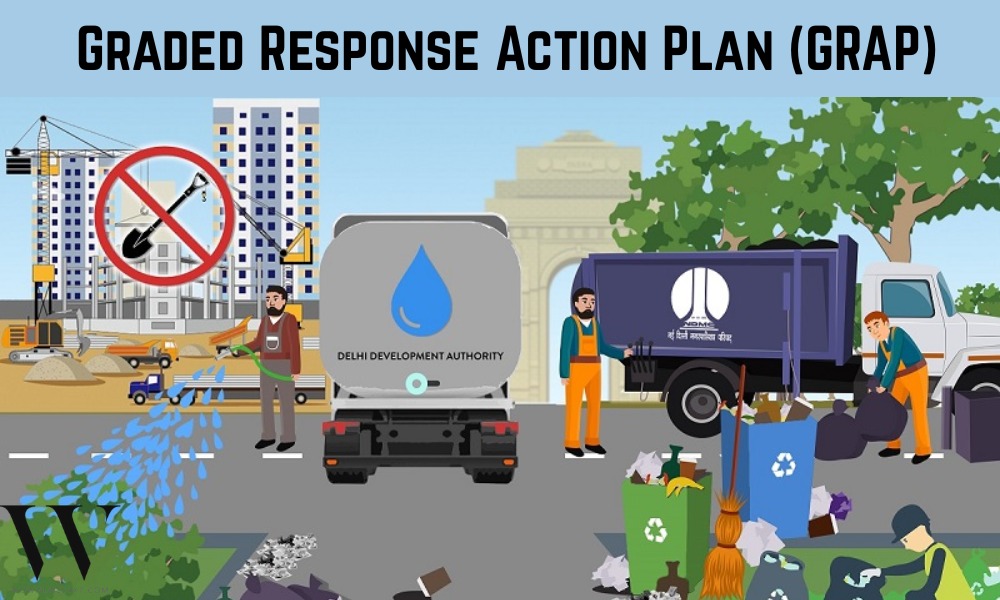GRAP (Graded Response Action Plan) is a multi-stage emergency response framework used primarily in Delhi-NCR to address worsening air quality. It activates progressively stringent pollution control measures based on Air Quality Index (AQI) levels, involving multiple agencies for timely coordinated action to protect public health.
The Graded Response Action Plan, or GRAP, is a strategic, stage-wise emergency framework designed to mitigate air pollution in the National Capital Region (NCR) and areas experiencing severe air quality degradation. Initiated through Supreme Court directives and implemented by the Commission for Air Quality Management (CAQM), GRAP is crucial for managing the health risks posed by escalating pollution.
Four Stages Linked to AQI Levels
GRAP operates in four escalating stages, each triggered by specified Air Quality Index (AQI) thresholds:
-
Stage I (Poor AQI 201–300): Introduces early pollution controls such as road dust management, enforcing pollution checks, and restricting open burning.
-
Stage II (Very Poor AQI 301–400): Adds stricter actions like banning diesel generators in non-emergency use, imposing higher parking fees, and expanding public transport options.
-
Stage III (Severe AQI 401–450): Enforces vehicle restrictions, bans construction and mining activities, and supports remote schooling to reduce outdoor exposure.
-
Stage IV (Severe+ AQI >450): Activates the most stringent measures including halting non-essential industrial activity, closing schools, and barring entry of heavy vehicles.
Proactive, Coordinated Implementation
GRAP is dynamic, utilizing weather and pollution forecasts from IMD and SAFAR to preemptively initiate measures before conditions worsen. Agencies collaborate in real-time, ensuring earlier stage controls persist as newer stages introduce additional curbs. This minimizes pollution spikes and safeguards public health.
Public Impact and Enforcement
The GRAP framework mandates collective action involving municipal authorities, transport departments, and environmental agencies. Enforcement ranges from increasing public awareness campaigns to rigorous vehicle emission monitoring and restrictions on industrial emissions. Regular updates inform citizens to aid compliance and health precautions during high pollution.
Sources: Hindustan Times, Indian Express, Commission for Air Quality Management (CAQM) releases, Drishti IAS, Times of India.
